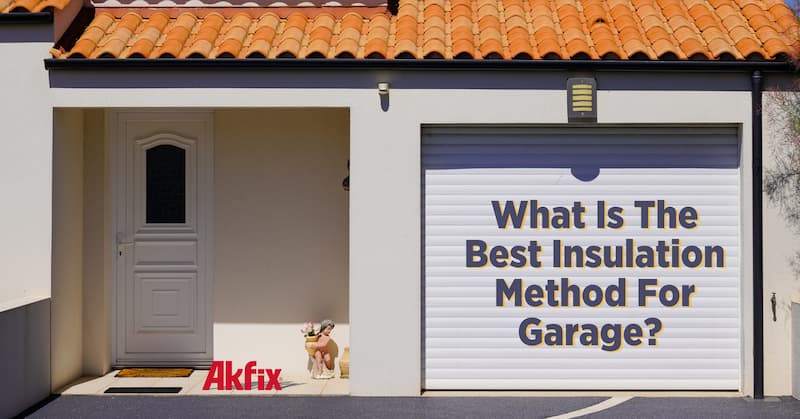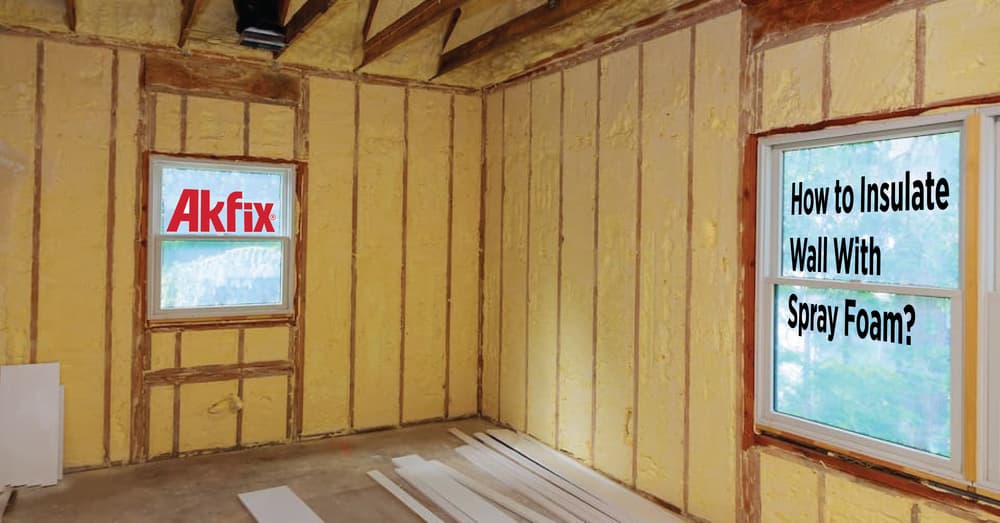Are you looking for the perfect insulation for your garage, or are you planning on insulating your garage and do not know which insulation fits your budget? Many homeowners may argue that garage insulation is unnecessary because nobody stays in there, but you will see the importance of insulating your garage in this article. Also, we will talk about the perfect insulation type and cost for your garage insulation.

Types of Garage Insulation
An uninsulated garage drives energy costs to the roof because just like any other room in the house, there are air spaces where heat transfer between the house and the environment can happen. Insulation saves energy costs, and since the garage is part of the home, it is only necessary to insulate it as well.
Garage insulation is the same as insulating other parts of the house. There are a variety of insulation types with different advantages and disadvantages. They include:
1.Fiberglass Insulation
Fiberglass Insulation is considered the most popular insulation type used for garage insulation. Fiberglass comprises fine glass fibers commonly used in batts and rolls to insulate a building. The rolls are cut to fit perfectly into the wall cavity and then stapled to hold it in place.
One significant advantage of Fiberglass insulation is that it can be carried out as a Do-It-Yourself project. Also, it is less expensive and easy to place in frames.
Airflow can still find its way through fiberglass insulation, increasing energy costs. Fiberglass insulation is dangerous to health when inhaled or in contact with the skin.

2.Cellulose Insulation
One of the oldest forms of insulation is cellulose insulation, which is currently beginning to grow in popularity. Cellulose insulation is made of recycled paper or recycled denim and coated with a fire retardant. A special blowing machine makes the cellulose fluffy. Cellulose insulation should be used to insulate the garage walls that are finished.
Cellulose insulation prevents waste as it is made of recycled materials and is a good choice to insulate the garage ceiling. Another benefit of cellulose insulation is that it is environmentally friendly, as no greenhouse gas is used as a propellant. It can also be carried out as a DIY project when the blowing machine is available.
One disadvantage of cellulose insulation is that cellulose absorbs 130% of water by weight and must be kept dry. Also, the chemical fire treatment is destroyed after absorbing water and it begins to deteriorate.

3.Rigid Foam Insulation
Available in 4x8 foot sheets and a thickness of 0.5 to 4 inches, rigid foam insulation is made up of Styrofoam-type material like polystyrene. Rigid foam insulation offers a higher R-value than fiberglass and cellulose insulation.
Rigid foam insulation is a good choice to insulate thin walls and garage doors. Rigid foam insulation also reduces noise, and it is affordable.
To insulate floors or thick walls, rigid foam insulation is not an ideal choice. It is susceptible to insects and termites and it is not retardant to fire.

4.Garage Door Insulation
Garage door insulation is also important when it comes to garage insulation. Pieces of rigid foam insulation or reflectix sheet are used to fit different sections of the garage door for insulation. For effective air sealing, an integrated weather seal strip with special garage door trim is used to create a seal along the sides and top of the door.
Garage door insulation adds durability to the door and it also dampens noise from the environment.
Installing garage door insulation may be unnecessary as other insulation types can do the job. It adds more weight to the garage door.

5.Spray Foam Insulation
Spray foam Insulation is the most efficient insulation type used for building insulation. Spray foam insulation is made of two chemical products that react to produce polyurethane foam. Spray foam insulation has the highest R-value of the insulation type and better air sealing properties than rigid foam insulation.
Spray foam provides better thermal insulation than any other insulation type. Walls and ceilings can be properly insulated using spray foam insulation. Spray foam insulation is also resistant to insects, moisture, and mold.
One disadvantage of spray foam insulation is that it is expensive and it may require the services of professionals for installation.
What Is the Cost of Insulating a Garage?
When deciding the type of insulation to use for your garage, the cost is a major factor. According to the national average, garage insulation can cost over $2000. Homeowners decide to insulate their homes based on their budgets or R-value they want to achieve.
The R-value determines the measure of thermal insulation of the garage. Also, the higher it is, the more insulated the garage will be. Therefore, a high R-value saves more energy costs.
|
Insulation Type |
R-value for 1” installed |
Average Cost per Sq Ft |
|
Fiberglass Insulation |
2.2 - 4.5 |
$0.65 - $2 |
|
Cellulose insulation |
2.5 - 4.3 |
$1.65 - $3.8 |
|
Rigid Insulation |
3.6 - 4.2 |
$5.7 - $15 |
|
Spray foam Insulation |
3.8 - 7 |
$3.15 - $7.5 |
What Is The Best Option For Garage Insulation?
Spray foam insulation is simply the best for garage insulation. Spray foam seals the air better and performs better than other insulation methods. Spray foam offers a high R-value which means it saves energy costs better than other insulation. Also, spray foam can last a lifetime, meaning there is no need for replacement over time.
FAQs for Garage Insulation
Is It a Good Idea to Insulate Your Garage?
One of the best things to do in your garage is to insulate it. Insulation makes it possible to have a comfortable temperature and it also saves energy costs. They are different insulation types to select from depending on your goal and budget.
Does Insulating a Garage Increase Home Value?
The garage may not be considered a living space but it is part of the house. Air leaks from the garage cause high energy consumption and Insulation creates an air seal that reduces these costs. Therefore, garage insulation will definitely score points with potential buyers
What R-Value Should I Use In My Garage?
Using the right R-value for your garage is important. The R-value of the garage is a measure of how insulated the garage is. For proper insulation, the garage should have an R-value of R13 to R15, which can be achieved using spray foam insulation.


